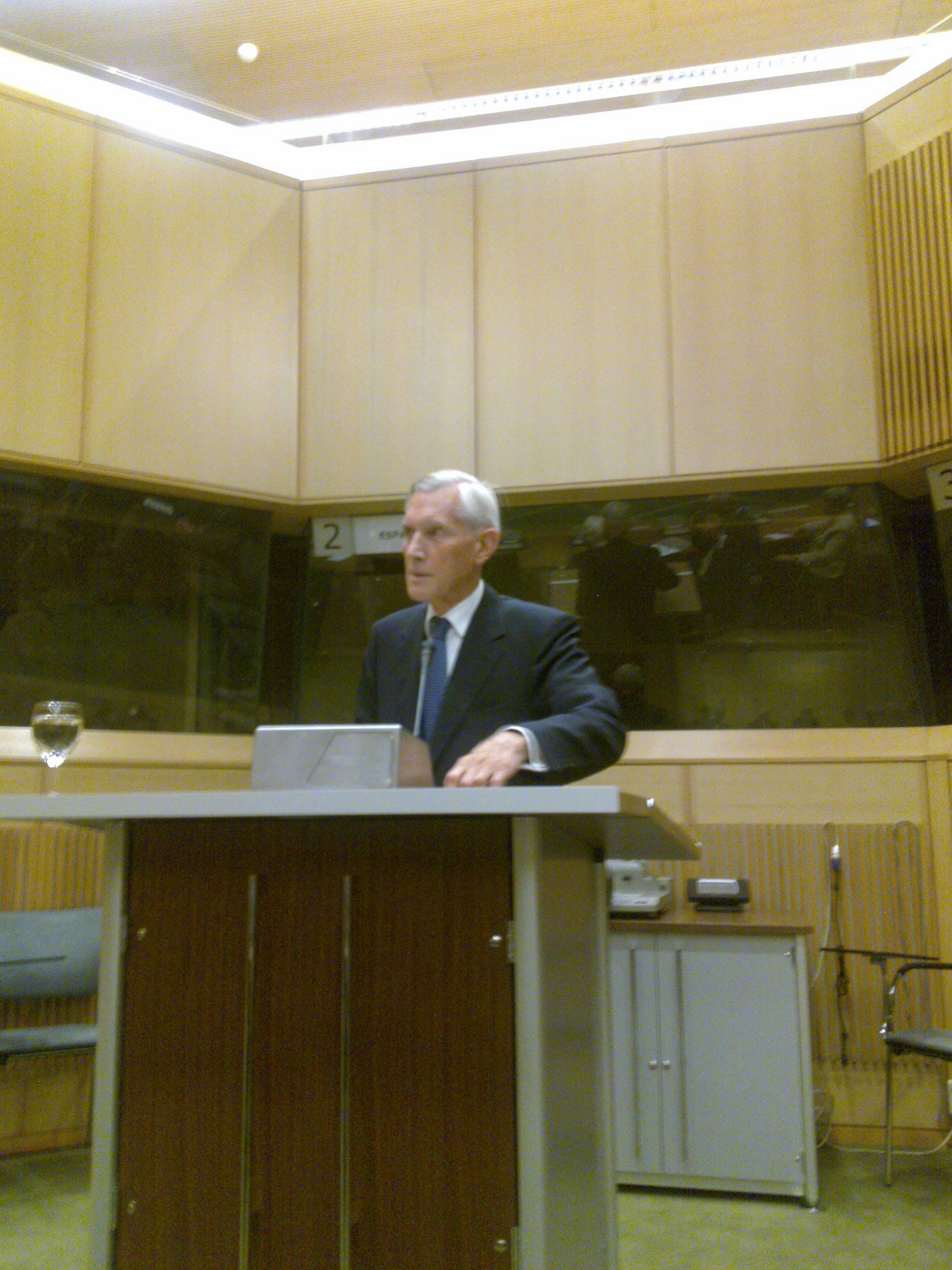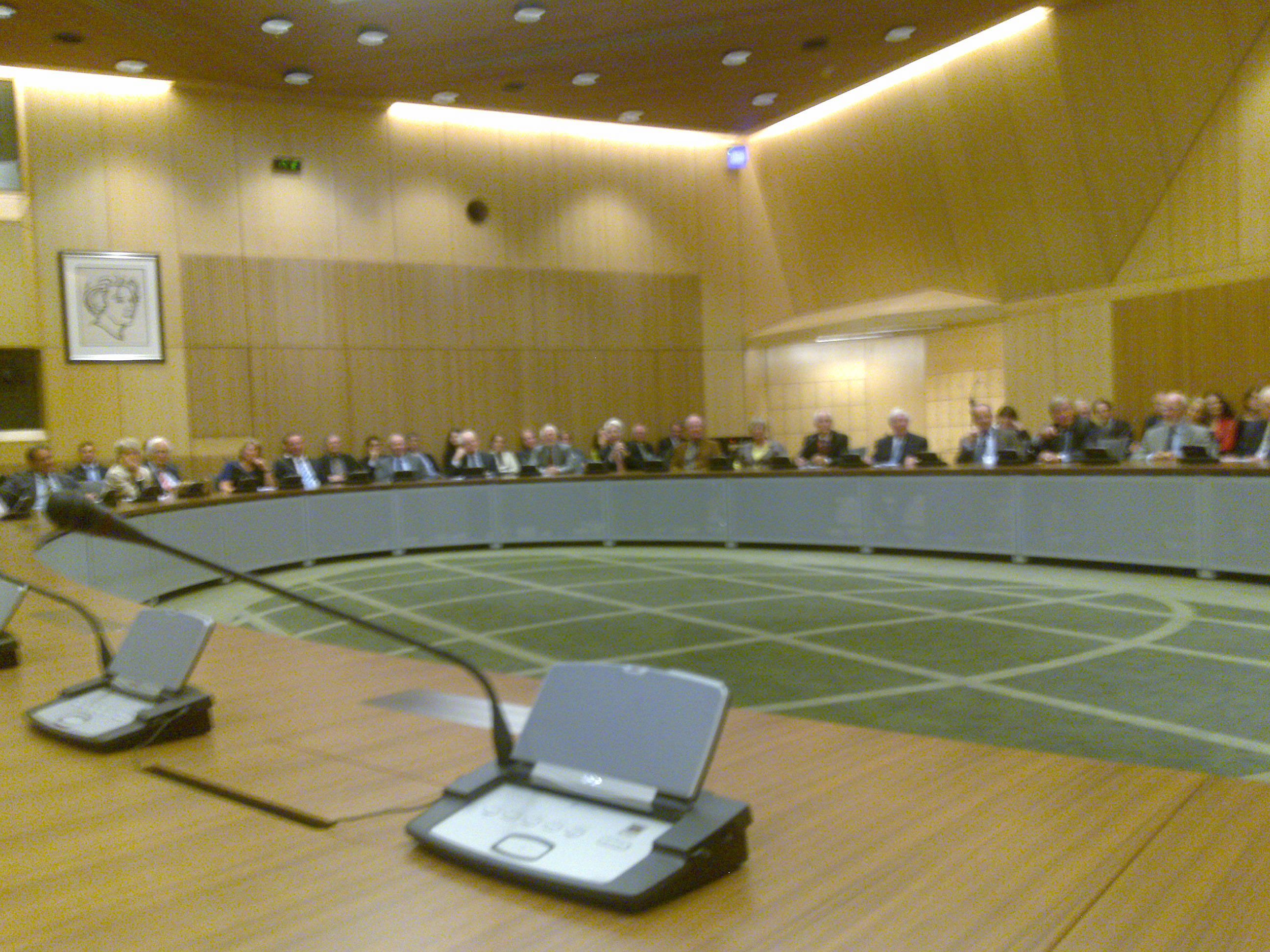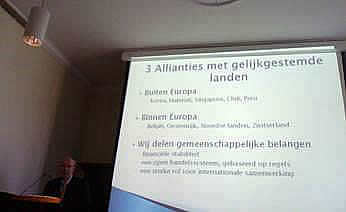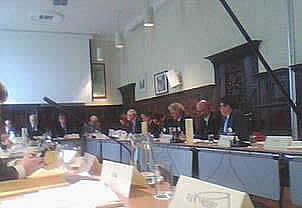International governance is increasingly important to find solutions to the financial and economic crisis that is currently raging in European countries. This is not just about agreements made in formal international organizations, but also coalitions of countries and non-state actors often ad hoc problems and try to solve the economic, political and strategic agenda.
EU and UN The European Union (EU) has been an observer state at the United Nations (UN) since 1974 and has had enhanced participation rights since 2011. The EU itself does not have voting rights but it is represented alongside its 2 The EU holds an enhanced observer status at the UN. While normal observers are not allowed to speak before Member States at the UN General Assembly, the EU was granted the right to speak among representatives of major groups on 3 May 2011. These include:
However, the EU does not have voting rights nor the right to sit on the Security Council. The EU is represented by the President of the European Council, the High Representative of the Union for Foreign Affairs and Security Policy, the European Commission and the EU delegations |
 |
 |
Great interest on 7 October 2009 for the delivery by former Dutch Minister of Foreign Affairs Mr. Ben Bot during the 'Van Bylandt' lecture on Reforms within structures of international cooperation: what is desirable, what is possible? Attitude of present great powers with respect to other growing powers and future prospects is coming to the front in present times. Remembering China and India, Europe should not be stay behind with respect to international shiftings. Thinking about economic ratio's: there is a mismatch in power distribution and responsibilities. Something should be done with the distribution of votes within institutions. Not only this item is an occasion to reform. Most of the important institutions are founded after WW-II and actually they need to be reformed all to be ready for the challenges ahead.
The EU created a framework for its future by the Lisbon Treaty, by which an opening comes into existance for a change to a technical and political organisation. Besides these views, CEPS delivered in October 2010 two papers on the role of Europe in the UN and in the IMF. Furthermore, also (required changes in) roles of organisations as IMF, World Bank, NATO, WTO and WHO were discussed. A rebirth or death of international organisations was addressed. In the present multipolar world international (IO's) organisations are of eminent importance. After all, current challenges require a global approach. Complicated problems with very complicated compromises appeared and that takes care of the fact that only a very small group of people does understand the matter. Another issue is that democratic feelings are strongly present, but not every nation does accept democracy on the level as western countries do. This also shows that changes within organisations are of need.If interests or goals does not allow reforms, then new institutions should be founded. Regional cooperation is also becoming more and more important. Mentioned as part of a solution: convene informal meetings. Observed was the absence of sufficient legitimation in the world. We must have eye for the perceptions of China and India, both countries have another view on developments in the world. G20 is a good example how an organisation could be reformed. So, call it realistic multilateralism: the willingness to address the legitimate of all other countries. If looking at the economies, politics and (all armies together) also military, EU + US are so strong, that it can take decennia before China and India can play the same role. |



